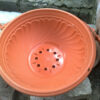A rapid pressure drop is usually a sign of a leak in the system, particularly if it happens when the boiler is on. Look for damp patches, drips around the base of the boiler or water leaks.
Similarly Can a boiler lose pressure without a leak? If your boiler maintains pressure after this, then it is likely that the problem has been solved. If your boiler continues losing pressure and there is no leak, then there may be a fault with the boiler.
Will bleeding radiators help boiler pressure? Yes. During the process of bleeding radiators, air is released from within them, which in turn reduces the pressure in your boiler system.
Additionally, Will bleeding radiators reduce pressure?
Bleeding radiators
If you bled your radiators recently, you may have lost some pressure. That’s because, when you bleed a radiator, air is released, which lowers the pressure in your boiler system.
Is 3 bar too high in boiler?
High boiler pressure isn’t dangerous, even if it’s showing as three bar on the pressure gauge. In most cases, the boiler will turn itself off if the pressure goes about a certain level and a working PRV should successfully control the pressure, preventing it from getting too high.
Does bleeding radiators reduce boiler pressure? If you bled your radiators recently, you may have lost some pressure. That’s because, when you bleed a radiator, air is released, which lowers the pressure in your boiler system.
What happens if you bleed a radiator with the heating on? Should I be bleeding radiators hot or cold? Always make sure your central heating system (your boiler) is turned off and your radiators are cold before attempting to bleed them. When turned on, your radiators contain hot water, and you could be at risk of scalding yourself if you bleed them at this time.
How often should you bleed radiators? With the production of air being a natural process of the central heating system, bleeding your radiators is one household task you’ll have to do on a regular basis. As a guide, bleeding them twice a year should keep them kicking out plenty of heat.
What pressure should my boiler be when cold?
What pressure should my boiler be when it’s cold? The normal boiler pressure when the central heating system has cold water should be between 1 and 1.5 bar. Most manufacturers recommend an optimal system pressure of 1.3 bar .
Is 2.5 bar too high for a boiler? If the bar is hitting over 2.5 bars, then the pressure from the water in the system is too high, and anything below 1 bar is too low.
Is it OK to bleed radiators when heating is on?
Turn off your heating. You can’t bleed a radiator when the heating is on, as it may be too hot to touch. You could also get hot water spraying out of the radiator. Use your radiator key to turn the valve at the top of the radiator.
Can a boiler explode? While historically, boilers would over-pressurise and explode with alarming regularity, modern boilers are manufactured to be able to withstand excessive pressure, and can typically handle an operating pressure of 20 PSI. When pressures increase beyond this level, the boiler can fail, which can lead to an explosion.
Can you bleed radiators when heating is on?
Turn off your heating. You can’t bleed a radiator when the heating is on, as it may be too hot to touch. You could also get hot water spraying out of the radiator. Use your radiator key to turn the valve at the top of the radiator.
Should you top up boiler after bleeding radiator?
Once you’ve bled the radiators, check the pressure gauge on your boiler. If the pressure is too low you’ll need to repressurise the boiler. If the system pressure is adequate, you can switch your heating on and check your radiators again to ensure that there are no remaining cold spots on the panels.
Why is radiator hot at top and cold at bottom? If your radiators are cold at the bottom but hot at the top, this means the flow of hot water is being restricted or redirected; this is usually caused by a build-up of sludge. This means the hot water is not reaching the whole of the radiator while the central heating is on, leaving it cold at the bottom.
Should water come out when you bleed a radiator? Yes, it is perfectly normal for water to escape when a radiator is bled. You’ll likely notice some drips emerging when initially turning the bleed screw in an anti-clockwise direction. And water would pour out once the air was released, if the valve was to be opened fully.
Does foil behind radiators work?
Putting kitchen foil behind the radiator is a false economy, as its effectiveness will be severely limited by these effects over time. Homemade foil radiator reflectors crinkle easily and oxidise, losing their reflective qualities.
Do you let all the water out when bleeding a radiator? Yes, it is perfectly normal for water to escape when a radiator is bled. You’ll likely notice some drips emerging when initially turning the bleed screw in an anti-clockwise direction. And water would pour out once the air was released, if the valve was to be opened fully.
Why is 1 radiator in my house cold?
Why is one radiator cold when the heating is on? One cold radiator usually indicates that either there is air in the system or there is a stuck valve within that radiator. The thermostatic radiator valve (TRV), like the one pictured below, controls the flow of hot water to the radiator.
Should I bleed radiators with the heating on or off? You should always bleed your radiators when the heating is switched off and the system has cooled down, because bleeding radiators with hot water flowing through the system increases the risk of scalds and burns.




